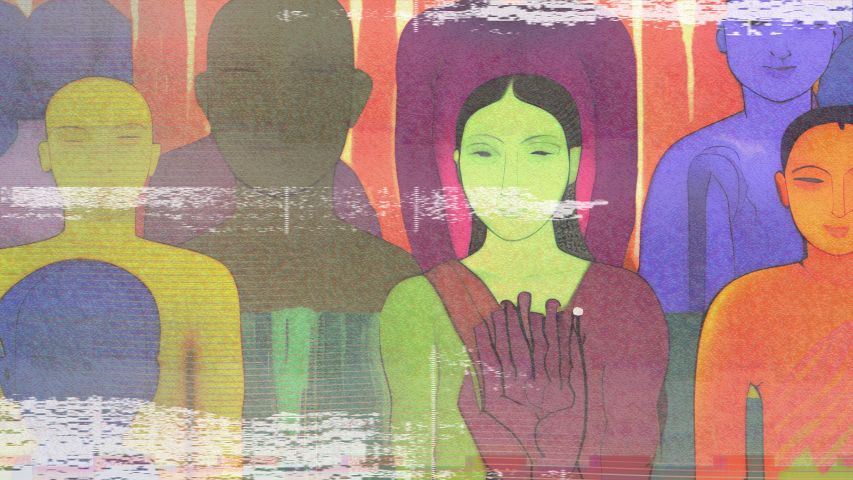
TRENDING: CHRISTMAS REFLECTIONS OF FAITH AND LOVE
by HUMRA QURAISHI December 22 2024, 12:00 am Estimated Reading Time: 4 mins, 28 secs"A heartfelt exploration of Christmas spirit, the enduring devotion of Mother Teresa, the timeless love of Zakir Hussain, and the poetic genius of Mirza Ghalib." Humra Quraishi remembers…
Celebrate the true spirit of Christmas with inspiring tales of love and devotion. From Mother Teresa’s selfless service to Ustad Zakir Hussain’s enduring marriage and Mirza Ghalib’s timeless poetry, this article explores stories of compassion, artistic excellence, and the celebration of humanity’s best qualities. Discover how these legacies connect to Christmas values and inspire hope in a world of challenges. Perfect for readers seeking uplifting narratives this holiday season.
Foremost, with Christmas approaching, I must begin this week’s column with an absolutely significant anecdote about Mother Teresa. When Khushwant Singh asked her, “Tell me, how can you touch people with diseases like leprosy and gangrene? Aren’t you revolted by those filthy with dysentery and cholera vomit?” she replied very calmly, along the lines of seeing Jesus in every human being: “I see Jesus in every human being…”
Mother Teresa’s selfless and earnest devotion to humanity saved countless lives and provided anchorage in the form of shelter and food for many. Salutes and salaams to the spirit with which the nuns continue to tend to hundreds among us—caring for the ailing, managing orphanages and hospices, and providing affordable education. Yet, anti-Christian violence persists, blatantly. From the horrific burning of Australian missionary Graham Staines and his two young sons in Orissa by Bajrang Dal members to mob violence and the destruction of churches and Christian schools, the communal strain is writ large. A vicious propaganda campaign unleashed by the Right-Wing falsely claims that the Christian population is rising due to conversions. In reality, the Christian population in India has actually decreased.

Ustad Zakir Hussain’s Love for His Wife Antonia
I had the privilege of meeting and interviewing the tabla maestro Ustad Zakir Hussain years ago at a popular café in New Delhi. During our conversation, he spoke of his childhood, his parents, and, of course, the classical musical strains that shaped his life. The interview was frequently interrupted by fans seeking his autograph, marvelling at his presence, or praising his performance at the recently concluded ITC Sangeet Sammelan. While the interruptions irritated me, he appeared unbothered, calmly stating, “It’s you media people who have made me into some number one tabla player… I’m just okay!”
He shared that his father, Ustad Alla Rakha Qureshi, was the first in their family to enter the world of classical music, as the other family members were farmers in Pagwal, Rattangarh district, Jammu and Kashmir. Speaking about his lifestyle, he said, “I live with very simple habits—simple food. No smoking or drinking for me.”
When asked about the constant attention from his fans, he shrugged it off, saying, “It doesn’t affect or distract me one bit—not of any significance. I’ve never had a relationship except with Antonia, whom I married in 1978. It’s been a very happy marriage. We get along because we give each other space. You can marry a Muslim, Hindu, Christian, or American; the important thing is that your souls should meet. That, to me, is the most significant aspect of marriage. If your souls meet, everything else works out.”
He spoke fondly of his wife, Antonia, who chose to forgo her career as a Kathak dancer to raise their two daughters. “She trained in Kathak here in Mumbai, and though her stay in Mumbai would have been excellent for her dance career—her guru is here—she decided to move to San Francisco for our daughters’ education. I travel between San Francisco and Mumbai.”

On Mirza Ghalib’s Day of Birth – 27 December
Mirza Asadullah Baig Khan, known by his pen name ‘Ghalib’ (the conqueror), was born in Agra on December 27, 1797. As a young man, he moved to Delhi, where he witnessed turbulent times, including the 1857 revolt and its socio-political aftermath. Ghalib wrote the Diwan-e-Ghalib at his house in Old Delhi, now a heritage site called Ghalib ki Haveli. He spent the last years of his life there until his death on February 15, 1869. Ghalib was buried near the dargah of Nizamuddin Auliya, close to the grave of Amir Khosrow.
This verse by Ghalib, featured in Khushwant Singh and Kamna Prasad’s volume Celebrating the Best of Urdu Poetry (Penguin), beautifully encapsulates his philosophy:
“Love gave me the lust for living - /To ease my pain it gave me something for sure; /It gave me such pain that nothing can cure.”
And another of his verses:
“To be united with my beloved was not writ in my fate /Had I lived any longer, it would have been the same long wait…”
Additionally, this verse from Ralph Russell’s A Thousand Yearnings: A Book of Urdu Poetry and Prose (Speaking Tiger Books), highlights Ghalib’s unmatched poetic grace:
“You stand away, and purse your lips /And show their rosebud form. /I said ‘How do you kiss?’ Come, kiss my lips and say ‘Like this!’”





-173X130.jpg)
-173X130.jpg)
-173X130.jpg)

-173X130.jpg)
-173X130.jpg)
-173X130.jpg)